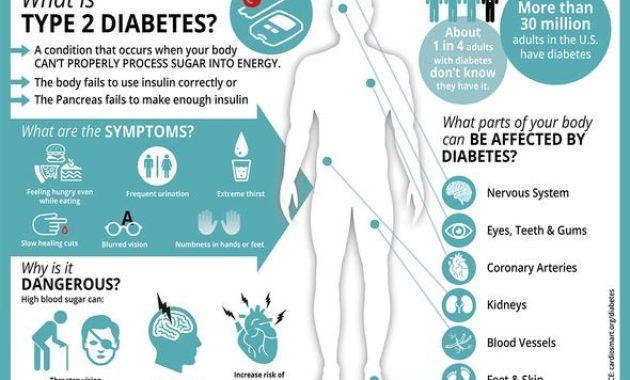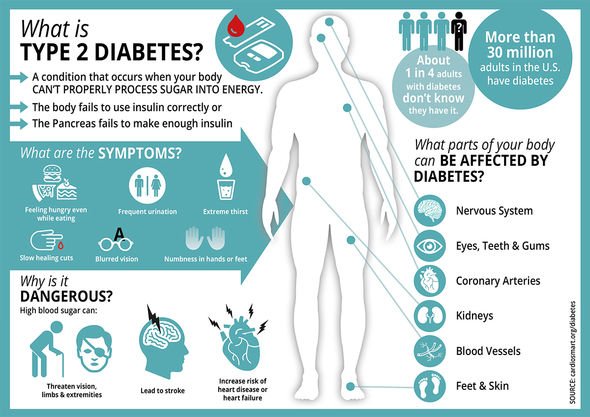
Unmasking the Silent Killer: How to Recognize Mental Signs of Diabetes Fatigue
Diabetes, a chronic metabolic disorder, affects millions worldwide. Beyond the well-known physical symptoms, diabetes can manifest in less obvious ways. One such manifestation is mental fatigue. This article delves into how to recognize mental signs of diabetes fatigue, exploring its causes, symptoms, and potential management strategies. Understanding these signs is crucial for early intervention and improved quality of life.
The Invisible Burden: Understanding Diabetes Fatigue
Diabetes fatigue is more than just feeling tired. It’s a profound and persistent exhaustion that significantly impacts daily life. It’s often overlooked or dismissed as a normal part of aging or stress. However, the impact of diabetes on the brain can lead to mental fatigue, affecting cognitive functions. This can include concentration, memory, and overall mental clarity. Recognizing the signs is the first step towards managing this challenging symptom.
What Causes Mental Fatigue in Diabetes?
Several factors contribute to mental fatigue in individuals with diabetes. These factors often interact, exacerbating the problem.
- Blood Sugar Fluctuations: Erratic blood sugar levels are a primary culprit. Hyperglycemia (high blood sugar) and hypoglycemia (low blood sugar) can both impair brain function. These fluctuations starve the brain of glucose, its primary energy source.
- Insulin Resistance: Insulin resistance, a hallmark of type 2 diabetes, can affect brain function. It can reduce the brain’s ability to utilize glucose effectively.
- Inflammation: Chronic inflammation, common in diabetes, can damage brain cells. It can disrupt the delicate balance needed for optimal cognitive function.
- Sleep Disturbances: Diabetes can disrupt sleep patterns. This includes frequent urination at night and nerve pain. Lack of quality sleep contributes to fatigue and cognitive decline.
- Complications: Diabetes complications, such as neuropathy and cardiovascular disease, can worsen fatigue. These complications can affect blood flow and nerve function.
Identifying the Mental Signs of Diabetes Fatigue
Mental fatigue manifests in various ways. It’s important to pay attention to these signs. They can signal an underlying issue with diabetes management.
- Difficulty Concentrating: Trouble focusing on tasks or conversations is a common sign. This makes it difficult to complete work or follow complex instructions.
- Memory Problems: Forgetting appointments, names, or recent events can be another indicator. This can lead to frustration and anxiety.
- Brain Fog: Feeling mentally foggy or confused is a frequent complaint. This can make it difficult to think clearly or make decisions.
- Slowed Thinking: Experiencing a slower processing speed can be another sign. This can affect reaction times and problem-solving abilities.
- Mood Changes: Irritability, anxiety, or depression can be linked to mental fatigue. These mood changes can further complicate diabetes management.
These mental signs of diabetes fatigue can significantly impact an individual’s quality of life. Recognizing these signs is crucial for seeking appropriate medical attention and support.
The Impact of Mental Fatigue on Daily Life
The effects of mental fatigue extend beyond feeling tired. They can affect various aspects of daily life.
- Work Performance: Reduced productivity, difficulty meeting deadlines, and increased errors are common. This can lead to job dissatisfaction and stress.
- Social Interactions: Difficulty engaging in conversations and social activities can lead to isolation. It can affect relationships with family and friends.
- Self-Care: Fatigue can make it difficult to manage diabetes effectively. This includes monitoring blood sugar, taking medications, and making healthy food choices.
- Overall Well-being: Mental fatigue can contribute to a decline in overall well-being. It can increase the risk of depression and other mental health issues.
Addressing mental fatigue is essential for improving overall health and well-being.
Managing Mental Fatigue: A Multifaceted Approach
Managing mental fatigue requires a comprehensive approach. It includes addressing the underlying diabetes and adopting lifestyle changes.
- Blood Sugar Control: Maintaining stable blood sugar levels is paramount. This involves regular monitoring and medication adherence. Working closely with a healthcare provider is important.
- Healthy Diet: Following a balanced diet rich in fruits, vegetables, and whole grains can help. Limiting processed foods and added sugars is also beneficial.
- Regular Exercise: Physical activity can improve insulin sensitivity and boost energy levels. Aim for at least 150 minutes of moderate-intensity exercise per week.
- Adequate Sleep: Prioritizing sleep hygiene is crucial. This includes establishing a regular sleep schedule and creating a relaxing bedtime routine.
- Stress Management: Practicing stress-reduction techniques can help. This includes meditation, yoga, or deep breathing exercises.
- Cognitive Strategies: Using memory aids and organizational tools can be helpful. These tools can improve focus and memory.
- Seeking Professional Help: Consulting with a healthcare provider is essential. Consider seeking support from a therapist or counselor.
The Role of Healthcare Professionals
Healthcare professionals play a vital role in managing diabetes fatigue. They can provide guidance and support.
- Diabetes Educators: They can help develop personalized diabetes management plans. They provide education on blood sugar control and lifestyle modifications.
- Physicians: They can diagnose and manage diabetes. They can also address any underlying medical conditions.
- Mental Health Professionals: Therapists and counselors can provide support. They can help individuals cope with the emotional challenges.
Regular check-ups and open communication with healthcare providers are crucial. This ensures effective management of diabetes and its associated symptoms.
The Importance of Early Recognition
Early recognition of the mental signs of diabetes fatigue is key. It allows for timely intervention. This can prevent the condition from worsening. It can also improve the overall quality of life.
- Improved Quality of Life: Effective management can reduce fatigue and improve cognitive function. This leads to a more active and fulfilling life.
- Reduced Risk of Complications: Managing fatigue can improve blood sugar control. This can lower the risk of diabetes-related complications.
- Enhanced Cognitive Function: Addressing fatigue can improve memory and concentration. This enhances overall cognitive abilities.
By understanding the mental signs of diabetes fatigue, individuals can take proactive steps. They can seek appropriate medical attention and support. This leads to better health outcomes.
Living Well with Diabetes: A Holistic Approach
Living well with diabetes requires a holistic approach. This includes managing physical symptoms. It also involves addressing mental and emotional well-being.
- Embrace a Healthy Lifestyle: Prioritize a balanced diet, regular exercise, and adequate sleep. These are essential for managing diabetes and reducing fatigue.
- Seek Support: Connect with support groups or online communities. Sharing experiences can provide emotional support.
- Practice Self-Care: Engage in activities that bring joy and reduce stress. This can include hobbies, spending time in nature, or pursuing creative endeavors.
- Stay Informed: Keep up-to-date with the latest diabetes research and treatment options. This empowers individuals to make informed decisions about their health.
By adopting a holistic approach, individuals can live fulfilling lives. They can effectively manage their diabetes and its associated symptoms. Recognizing the mental signs of diabetes fatigue is a crucial first step. It empowers individuals to take control of their health and well-being.
The information provided in this article is intended for general knowledge and informational purposes only. It does not constitute medical advice. It is essential to consult with a qualified healthcare professional for any health concerns or before making any decisions related to your health or treatment. Early recognition of the mental signs of diabetes fatigue can significantly improve outcomes. Seeking professional guidance is crucial for effective management. Remember, understanding the link between diabetes and fatigue is vital. This allows you to take control of your health. It also empowers you to live a healthier life. The impact of diabetes on cognitive function should not be underestimated. Prioritizing mental health is an integral part of diabetes management.
[See also: Related Article Titles]

